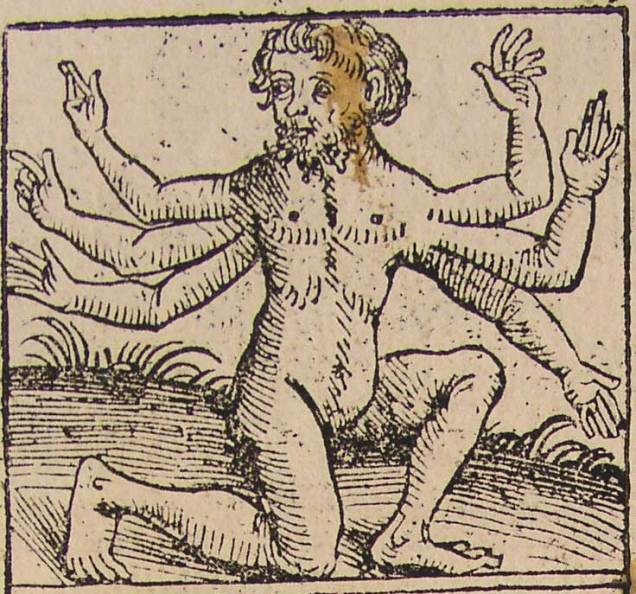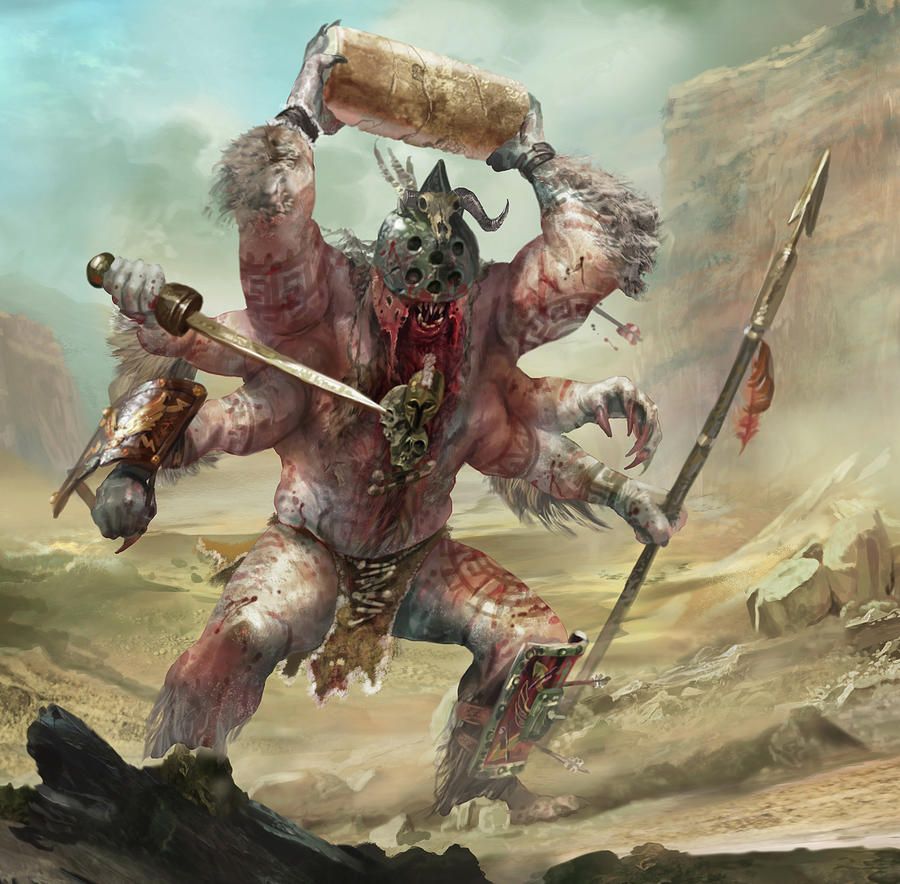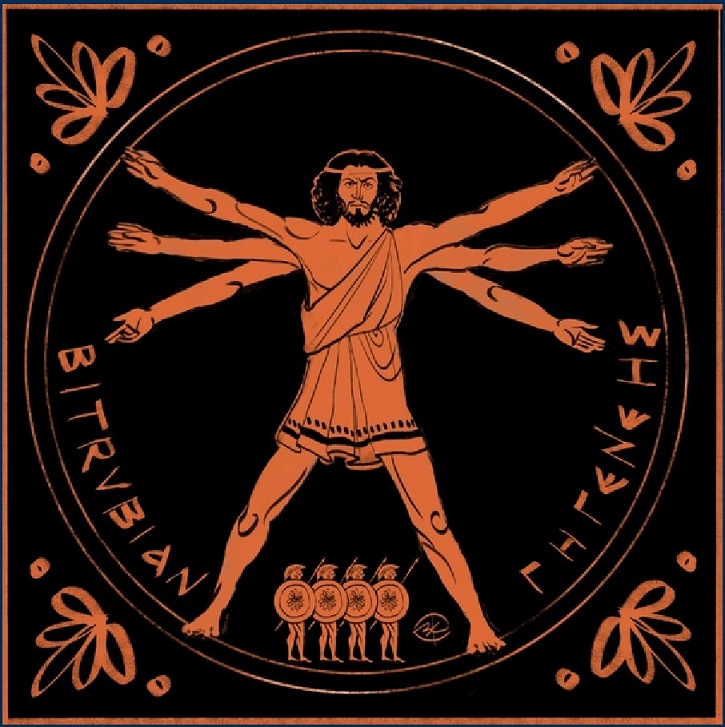Gegenees Giants
The Giants with the six hands
Giants were common characters from the stories of Ancient Greece, with individuals, and races of giants, seen as worthy opponents for both heroes and gods.
One such race of giants was the Gegenees, a tribe of fierce, uncivilised giants, who were encountered by the Argonauts; an encounter specified in the Argonautica by Apollonius Rhodius.
GEGENEES CHILDREN OF GAIA
The Gegenees were named as children of Gaia; as indeed were many of the giants of Greek mythology, including the Gigantes. The Gegenees were of prodigious size, but their distinguishing feature was the fact that they had six arms, two protruding from their shoulders, and a further two pairs from their rib cage.
The Gegenees were also described as lawless and troublesome, but these were traits of virtually all giants that appeared in Greek mythology.
THE HOME OF GEGENEES
The home of the Gegenees was an outcrop in the Sea of Marmara, located to the east of the mouth of the River Aesepus. This outcrop of land comprised of a lowland plain, and also a high mountain, and was virtually an island for there was but a narrow, low-lying isthmus attaching it to the mainland of Mysia.
The Gegenees shared their island home with a tribe of men, the Doliones; with the Doliones living on the lowland plain and the Gegenees upon the mountain slopes. Trouble between the two tribes was avoided though, for despite being troublesome in nature, the Gegenees were afraid of the wrath of Poseidon, for the Doliones were his descendants.

THE GEGENEES AND THE ARGONAUTS
The Gegenees would be encountered by the Argonauts, the band of heroes who sailed on-board the Argo, during the Argonauts voyage to Colchis.
The Argonauts found safe anchorage off of the land mass, and found a friendly welcome from the king of the Doliones, King Cyzicus. Lulled into a false sense of security by this friendly welcome, half of the Argonauts set off to explore mountainous slopes, whilst the remaining Argonauts brought the Argo into the harbour of Chytus.
With the strength of the Argonauts divided into two, the Gegenees saw an opportunity to attack. The giants threw boulders blocking the harbour entrance, believing that their prey, the Argonauts, had now no means of escape. The Gegenees though did not know the type of men they were attacking; for the party that were with the Argo included Heracles, the greatest of all Greek heroes.
Heracles took up his famous bow, and unleashed arrow after arrow against the Gegenees, with many of the giants dying as the Hydra poison imbued arrows found their mark.
The Gegenees retaliated unleashing their own form of long range weapons, and a fusillade of jagged rocks were thrown at Heracles and the other Argonauts, though none of the heroes were seriously injured.
The attack of the Gegenees has been successfully delayed, and it was a delay long enough to ensure that the Argonauts who had gone exploring upon the mountain, were able to return to the side of their comrades. Now, the Gegenees faced the combined force of the Argonauts. The Gegenees were not cowards though, and time after time the rushed forward to attack; it though was a massacre, for one by one the Gegenees fell to the weapons of the Argonauts, until there were no more giants left.
CLASSICAL LITERATURE QUOTES
Apollonius Rhodius, Argonautica (trans. Rieu) (Greek epic C3rd B.C.) :
"In the Propontis there is an island sloping steeply to the sea, close to the rich mainland of Phrygia, and parted from it only by a low isthmus barely raised above the waves. The isthmus, with its two shores, lies east of the River Aisepos (Aesepus); and the place itself is called Bear Mountain by the people round about. It is inhabited by a fierce and lawless tribe of aborigines, who present an astounding spectacle to their neighbours. Each of these earthborn monsters is equipped with six great arms, two springing from his shoulders, and four below from his prodigious flanks. But the isthmus and the plain belong to the Doliones, who had for king the noble Kyzikos (Cyzicus) . . . These people were never troubled by the fearsome aborigines: Poseidon, from whom they were descended, saw to that.
Argo, pressing on with a stiff breeze from Thrake behind reached this coast and ran into a harbour called Fairhaven . . . The Doliones and Kyzikos their king received the Argonauts in a friendly spirits . . .
In the morning some of the Argonauts climbed towards the top of Dindymon in the hope of seeing for themselves the waters they would have to cross . . . Another party brought the ship from her former anchorage to the harbour of Khytos (Chytus) [Kyzikos' city].
But now the earthborn savages, coming from the other side, dashed down the mountain and blocked the mouth of the ample harbour of Khytos with boulders, in an attempt to pen them like wild beasts in a trap. However, Herakles had been left there with the younger men. He quickly bent his recurved bow and brought a number of the monsters down. The rest retaliated by pelting him with jagged rocks. And I cannot but surmise that these redoubtable beasts were bred by Hera, wife of Zeus, as an extra labour for Herakles. But just at this moment, the rest of the Argonauts, who had turned back before reaching the summit, appeared on the scene to take their part in the slaughter. The monsters charged with fury more than once, but the young warriors were ready for them with their spears and arrows and in the end they killed them all.
When the long timbers for a ship have been hewn by the woodman's axe they are laid in rows on a beach and there they lie and soak till they are ready to receive the bolts. That is how these fallen monsters looked, stretched out in a row on the grey beach by the harbour mouth. Some were sprawling in a mass with their limbs on shore and their heads and breasts in the sea. Some lay the other way about; their heads were resting on the sands and their feet were deep in the water. But in either case they were carrion for birds and fish. The day was won and the Argonauts had no more to fear."

Sources
Apollonius Rhodius, The Argonautica - Greek Epic C3rd B.C.
"Greek Legends and Myths"
"Theoi"













